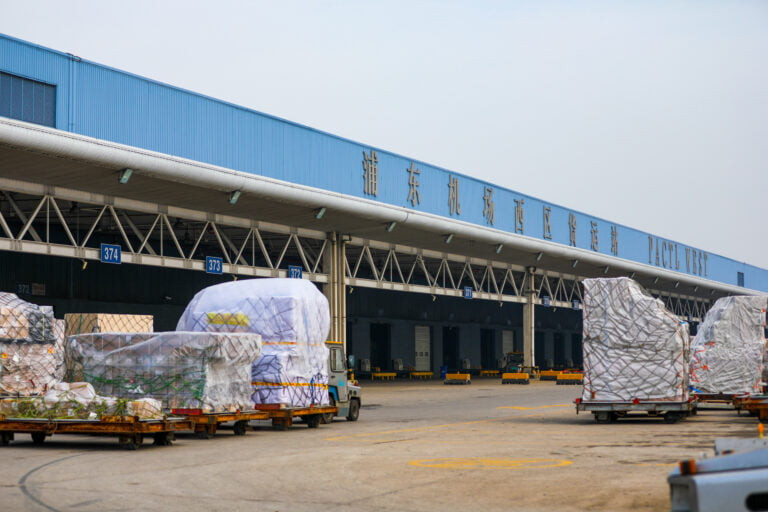Shanghai boasts several significant advantages as an airport hub in the Asia-Pacific region, particularly in terms of connectivity and density of the network, which links the hub to the rest of the world.
Being a harbour city, Shanghai has a long history as a centre of trade and logistics. As a large-scale composite hub integrating the functions of a local distribution hub, gateway hub and domestic and international transit hub, Shanghai’s two airports now own a total of four terminals, one of the world’s largest single satellite halls, five cargo areas, six runways, 435 parking spaces, and the design capacity of passenger and cargo has reached 120 million passengers and 5.2 million tonnes.
At present, Shanghai’s two airports have opened two remote city cargo terminals in the Yangtze River Delta region, which enhances the service radiation scope to the Yangtze River Delta region. The subsequent construction of Shanghai’s aviation hub will serve the development of the Shanghai Pilot Free Trade Zone and the new area, give full play to the rich route resources and unique location advantages of the Pudong Airport Comprehensive Bonded Zone. Therefore, Shanghai will continue to improve and be a leading world class airport.
“In today’s interconnected global economy, being based at such a strategic location provides advantages for businesses navigating the complexities of international trade and logistics,” Carsten Hernig, Deputy General Manager at PACTL, highlighted.
“As a leading cargo terminal at Shanghai Airport, PACTL plays a pivotal role in facilitating the movement of goods between the Far East and the rest of the world. Such a crucial location enables us to reduce transit times, increase efficiency, and provide access to a larger market, all of which are vital for meeting the demands of modern supply chains.
“By serving as one of the most important gateways in Asia, PACTL facilitates quicker connections between major manufacturing centres in the Far East and global markets, ensuring just-in-time delivery and enhancing supply chain reliability.
“Furthermore, our commitment to first-class service and multimodal transportation options allows us to offer seamless connectivity to cities on five continents. This strategic advantage attracts businesses seeking to optimise their supply chains and take advantage of the emerging opportunities in the dynamic Far East region.
“In essence, being based at such a strategic hub enables PACTL to provide efficient, reliable, and seamless connectivity between Far East and global markets. This empowers businesses to thrive in an increasingly interconnected world.”
Global picture
The evolving global landscape may introduce uncertainties that could affect operations at the Shanghai hub. Airspace restrictions and closures, possibly stemming from geopolitical tensions, may necessitate route adjustments for carriers, potentially leading to increased costs and logistical challenges.
While such instabilities pose challenges, it’s crucial to view them as part of the dynamic nature of the aviation industry. In other words, dealing with instability will remain an issue for always – but the key to success is to find new opportunities in the changes. Those opportunities are usually found when you focus on your customer needs and develop adequate new solutions for the client’s needs in a rapidly changing environment. There are plenty of opportunities ahead of us!
Additionally, the global economic climate and trade policies also play their role in the future, which we can expect.
“Taking all this together, one could say the environment could be better, but at the same time, we know that this has always been our daily environment in this industry and this airport,” Hernig outlined.
“In other words, despite all that is happening, there is reason to be strongly optimistic because success is driven by doing the right thing in the respective scenario – and that is what we are good at.”




